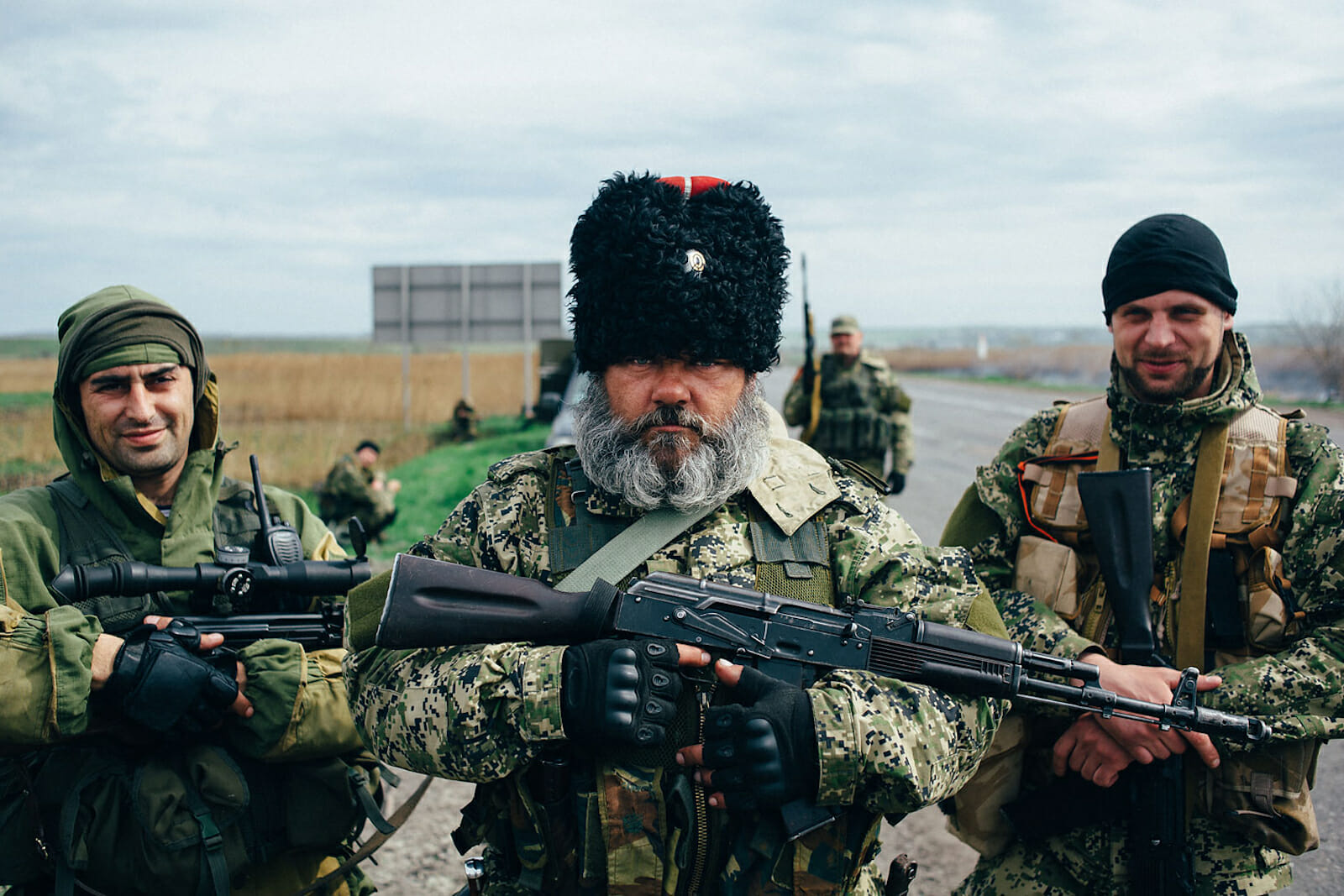
Has Putin Overplayed his Hand in Ukraine?
Until recently, Vladimir Putin has had to contend with little more than targeted sanctions and threats from the Obama administration that Russia will feel the pain for violating Ukraine’s territorial integrity. Threats have failed to persuade Russia to pull back; Western antagonism and land reclamation have only boosted Putin’s domestic popularity. In the end, the Kremlin has likely overplayed its self-perceived position of strength in Ukraine. As Western leaders plot ways to punish Putin, there is little they can conceivably do to stop him.
While the US has dispatched several hundred soldiers to several east European states, these moves are merely to assuage any fears on the part of Poland, Estonia, Latvia and Lithuania that NATO and the US will not abandon them should Putin set his sites further west. Regardless of the fact that Russian armed forces are better trained than many of their west European counterparts, it would seem unlikely that Putin would invade any NATO member state.
Ukraine was an easy target. Its military was underfunded during the Yanukovych years. Through years of corruption and mismanagement, Ukraine’s military is a shell of its former self. From a height of approximately 750,000 military personnel decades ago the military now numbers roughly 140,000 and many of these soldiers are poorly trained. Add to that, when the United States, United Kingdom, and Russia signed a memorandum in Budapest in 1994 where they committed not to coerce Ukraine, there was no reason to rebuild its military. Ukraine’s mistakenly believed that the memorandum was a pledge but in reality, it was simply an agreement not to use military or economic coercion against Ukraine.
Ukraine’s First Deputy Prime Minister Vitaly Yarema suggested in an interview with the Wall Street Journal, “For the past 23 years we never really rearmed…We don’t have any of the modern equipment that is being used in other countries.”
A recent encounter between pro-Russian protesters and Ukraine’s military illustrates the shoddy nature of the military. Several dozen Ukrainian paratroopers simply surrendered rather than fight unarmed pro-Russian protesters. In addition, they also surrendered much needed military equipment that Kiev will need in the future.
And in a warning for Kiev, Russia’s foreign minister, Sergei Lavrov, has suggested that if Kiev persists in trying to retake territory occupied by pro-Russian protesters, Moscow will consider it an attack on Russian interests. “If our interests, our legitimate interests, the interests of Russians have been attacked directly, like they were in South Ossetia for example, I do not see any other way but to respond in full accordance with international law,” Mr. Lavrov said.
The annexation of the Crimean Peninsula succeeded without firing a shot, yet it resulted in substantial capital outflows in the area of approximately $70 billion since the beginning of the year. Further aggression made by Russia will continue to exacerbate the country’s hastening economic decline. Though Putin’s popularity has been soaring at home his image abroad is in tatters. Some nations – such as Venezuela and Afghanistan – have offered their support for Putin; however, the consensus among world leaders is that Russia’s annexation of the Crimean Peninsula was illegal and any further action in Ukraine’s east is a bridge too far.
Putin’s decision to annex the Crimea couldn’t have come at a worse time for Russia. Russia’s decision to forgo modernization and rely heavily on oil and natural gas exports could be Putin’s Achilles heel. Russia’s economy is stagnant. Because 1.25 million Russians who have higher education degrees work abroad, the country’s economy suffers from brain drain. A second issue is that Russia’s fertility rates have been declining for decades and the elderly population continues to grow, and, as Svetlana Bocherova, chair of Good Without Borders, pointed out, “If this trend continues, Russia will die out.” Russia’s current demographics are untenable for the country and have “crippling implications for [its] economic development,” says Yury Krupnov, the director of Institute of Demography, Migration and Regional Development.
Putin attempted to monetize the state pension system, in 2001. It was a failure from the beginning. Protests occurred about monetizing benefits, but his refusal to increase the retirement age has led to his continued popularity. The state pension system is in need of a direct injection of cash for stability because he has used the state pension system to inject money into the economy on national projects, such as railways and super-highways for transporting goods across the country. There was no direct payback for the projects and the finances proved only marginally effective.
In essence, Putin embarked on his Ukraine adventure at a really inopportune time. If the US and Europe decide to turn the screws and really pressure Putin with tough sanctions, versus the weak approach they have embarked upon up until now, the Russian economy could falter quickly. Putin’s position is one of weakness. Corruption is rampant, the economy is heavily dependent on oil exports, Russians are mired in poverty, and the standard of living for most Russians is low compared to many Western countries.
Europe is heavily dependent on Russian gas, but Russia is more dependent on its oil exports to the west. 66 percent of Gazprom’s business is with Europe. If Europe were to find a new source of oil and gas, it would erode the revenue needed to stabilize Russia’s economy. The Kremlin has recognized its precarious position and is currently seeking to finalize a deal with China, next month. Wariness remains on both sides, as Beijing and Moscow have never reconciled past indiscretions, making a favorable deal for Moscow unlikely. Moreover, the current sanctions levied by the West have placed China at a competitive advantage at the negotiation table.
For the past 40 years, the United States has banned crude oil exports; however, with limited options for Russia regarding market access, the US has an opportunity to strengthen its economy, assist its allies, and undermine Russian stability
Russia has a storied past and Putin’s sales pitch to Russians is the need to restore its imperial greatness. But while many Russians are too young to remember the Cold War days of long waits in line to buy basic staples, the updated textbooks that look past this and only talk of Russia’s gloried past makes it unlikely that Russians on the streets of Moscow will question Putin’s decisions in Ukraine. And whatever dissent exists is quickly dealt with by the police.
Kenneth Rogoff of Harvard University makes the point that while Putin has approached Ukraine like a chess master, Putin’s failure to have a long-term strategy could be his biggest folly. “Putin is playing from a very weak position…But he’s very good at it. That doesn’t mean he’s not going to win. A really strong chess player doesn’t need a good position to win.” But one needs a good plan in the long-term to deal with the fallout.


